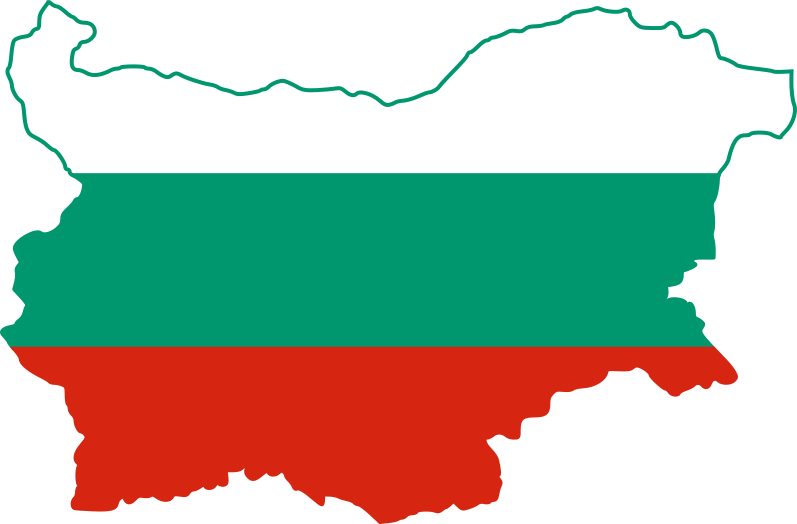Our native Bulgarian translators will be assigned on the project according to their experience with similar content. We only use experienced native translators who have been thoroughly vetted by language testing proficiency tests.

TRANSLATE BULGARIAN TO ENGLISH TODAY!
Professional English to Bulgarian Translations
VEQTA Translations offers expert English to Bulgarian translation services, performed by certified Bulgarian translators with extensive experience. Our translators ensure not only linguistic accuracy but also the true conveyance of your content’s meaning, thanks to their native proficiency and deep understanding of industry-specific terminologies in Marketing, IT, Manufacturing, Finances, Retail, Legal, Tourism & Travel, and more. Located in Malaysia and Singapore, our team is strategically positioned to serve both local and international clients.
Key Services:
- English to Bulgarian Translation
- Bulgarian to English Translation
Bulgarian, a distinct member of the South Slavic language group, employs the Cyrillic alphabet and stands out among Slavic languages due to its use of definite articles. This unique feature necessitates meticulous handling to accurately render the Cyrillic script, which, if done incorrectly, can lead to misunderstandings and accessibility challenges. At VEQTA, our Bulgarian translators are committed to delivering translations that are not only precise but also culturally resonant, ensuring your message is effectively communicated across linguistic boundaries.
As a leading language service provider based in Malaysia, VEQTA Translations excels in providing comprehensive localization and translation solutions across a wide range of commercial languages. Our Bulgarian translation services are backed by subject matter experts from major industries, ensuring each translation is flawless and industry-appropriate. We adhere to the highest standards of localization best practices, including the use of style guides, glossaries, CAT Tools, and rigorous quality assurance processes.
Clients from Selangor, Johor, Sabah, Penang, Singapore, and worldwide, trust us for high-quality and precise Bulgarian translations for all document types and content needs. Choose VEQTA Translations for your English to Bulgarian translation requirements to ensure your message resonates accurately and effectively with your target audience.
Once the translation has passed certain quality criteria, it’s passed to the Editor. The Bulgarian Editor is a senior translator who will go through and polish the text, e.g correcting syntax, grammar and flow.
As a final quality assurance step, we will go through the Bulgarian documents again to give it an overall quality check, check on typos, any missing content and correct any inconsistencies in the translation.
We translate English to Bulgarian for Marketing, Websites, Apps and Cloud
Bulgarian language translation requires Subject Matter Expertise for a perfect result.
We provide Bulgarian terminology experts who has worked in a related field of the source material in Bulgarian.
Voice over in Bulgarian language and an array accents and other languages for cold or hot recording for broadcasting, e-learning modules or voice or video translation for corporate use.
Bulgarian is an important language to consider for translation of your marketing material.
A high quality translation will give you the maximum impact of your marketing material!
English to Bulgarian Language Expertise
- Bulgarian Subject Expertise
- Bulgarian Editors
- Bulgarian Reviewers
- Bulgarian Subtitling
- Bulgarian Translators
- Bulgarian Copywriters
- Bulgarian Voice dubbing
- Bulgarian Transcription
A dedicated team of Bulgarian translators who combines Experience, Specialized Subject Matter Expertise with Translation Practices to deliver quality second to none.
Bulgarian Localization Solutions
- Bulgarian Document Translation
- Bulgarian I.T Translation
- Bulgarian Medical Translation
- Bulgarian Financial & Accounting Translation
- Bulgarian Legal Translation
- Bulgarian Health & Fitness Translation
- Bulgarian Marketing Translation
- Bulgarian Tourism & Travel Translation
Need a quote?
Connect with your Linguistic Translation Specialist Today!
Fast, Accurate & Affordable Translation Solutions!
Get In Touch
Singapore: +65 6829 7058
Malaysia: +60 3 2776 6812
Thailand: +66 98357 8074
info@veqta.com
Translation & Localization Services in Over 200 Languages

Asian
- Chinese Translation Services
- Thai Translation Services
- Japanese Translation Services
- Korean Translation Services
- Indonesian Translation Services
- Lao Translation Services
- Philippines (Tagalog) Translation Services
- Vietnamese Translation Services
- Burmese Translation Services
- Cambodian (Khmer) Translation Services
- Kazakhstan (Kazakh) Translation Services
- Mongolian Translation Services
- Persian (Farsi) Translation Services
- Armenian Translation Services
European
- French Translation Services
- German Translation Services
- Spanish Translation Services
- Italian Translation Services
- Greek Translation Services
- Portuguese Translation Services
- Dutch Translation Services
- Turkish Translation Services
- Swedish Translation Services
- Norwegian Translation Services
- Danish Translation Services
- Finnish Translation Services
- Icelandic Translation Services
- Croatian Translation Services
- Maltese Translation Services
- Macedonian Translation Services
- Catalan Translation Services
Eastern European
- Russian Translation Services
- Polish Translation Services
- Romanian Translation Services
- Hungarian Translation Services
- Ukrainian Translation Services
- Czech Translation Services
- Bulgarian Translation Services
- Estonian Translation Services
- Belarusian Translation Services
- Lithuanian Translation Services
- Bosnian Translation Services

